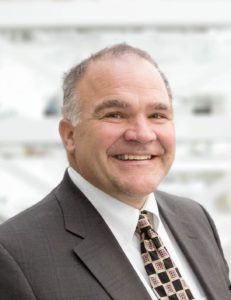Which Tax Law Is Really Hurting Silicon Valley?
Silicon Valley is known for a lot of things. Some of the world’s greatest technological advances and ideas have come from companies located in the Silicon Valley. Likewise, some of the world’s most innovative and largest companies were born in Silicon Valley and still call it home today. Many people have found great success and riches in Silicon Valley, including many employees who helped build companies from the ground up.
There is a big problem, though, for many of these kinds of employees. There is a tax provision that is really hurting people who have worked for many years for start-ups or newer companies and have helped them become successful and valuable companies. However, when it coms time for many of these employees to leave their job or simply to cash out their stock options, they can’t really afford to pay the required cash outlay.
This problem should have been fixed when companies were allowed to give employees incentive stock options. However, in 1982, Congress changed that rule when it turned exercising an incentive stock option into a tax preference as part of the AMT. That meant any gain on the exercise of incentive stock was now taxed. This is very problematic for any employee in this boat, which is having a hard time exercising his or her options. In some cases, even if they can’t sell the stock, some employees end up owing tax on phantom income but they have no money to pay for it.
This tax provision is clearly causing problem for many people who have helped make Silicon Valley what it is today. And it’s a problem that the government should fix.
President Trump Signs CARES ACT, What Does this Mean?
Fremont California, March 27, 2020 – President Trump Signs CARES ACT. As COVID-19 continues to threaten almost every aspect of our lives, our government has expedited passing legislation and President Trump has signed, the Coronavirus Aid, Relief, and Economic Security (CARES) ACT. The CARES ACT is a massive bill, the majority of which does not…
The AICPA urges IRS to provide payment relief due to COVID-19
The AICPA on Thursday urged Treasury and the IRS to provide broader tax filing and payment relief for taxpayers affected by the ongoing COVID-19 pandemic. In a letter to Treasury Assistant Secretary for Tax Policy David J. Kautter and IRS Commissioner Charles Rettig from Christopher Hesse, CPA, chair of the AICPA Tax Executive Committee, the AICPA…
Coronavirus (COVID-19) Tax Information Summary
Coronavirus Tax Information Please note: clients will need to work extensively with their payroll tax service provider, and their Human Resource professional as this all gets complex. I assume information of how to compute and input amounts on the related forms will be provided in detail in the coming weeks. Congress is working on another…
COVID-19 Resource Center
MESSAGE FROM MANAGING PARTNER ALAN OLSEN Greenstein, Rogoff, Olsen & Co., LLP (GROCO) CPAs & Advisors remains committed to serving our clients. We hope this email finds you and your family well and in good health. If the COVID‐19 virus is affecting you or a loved one, we wish you and yours a speedy and…




